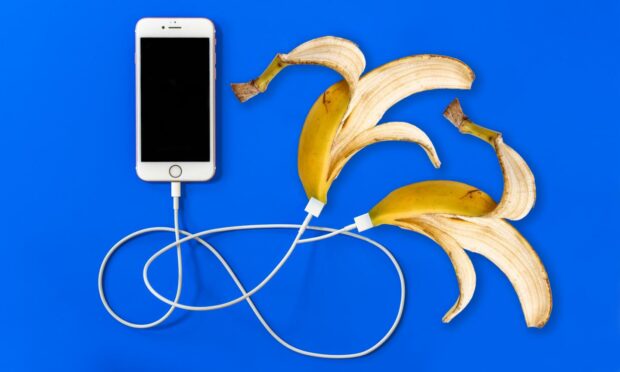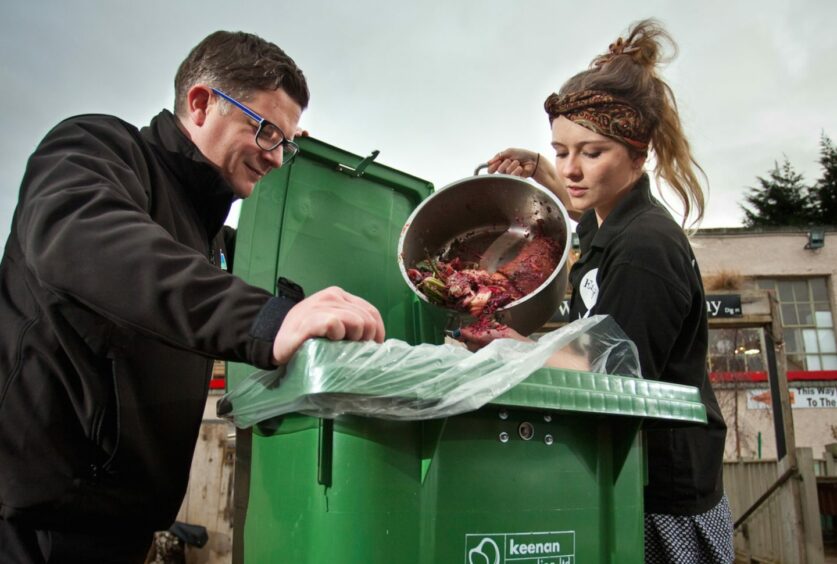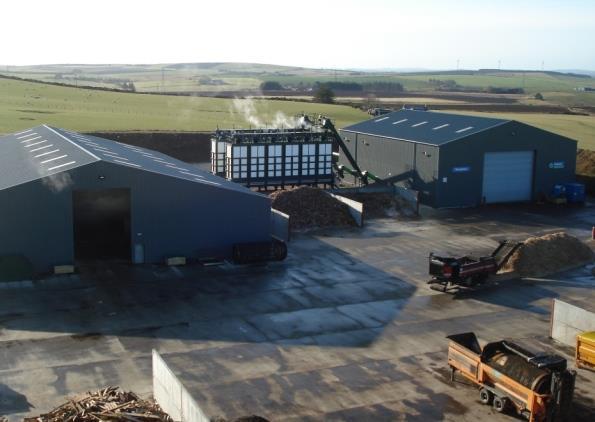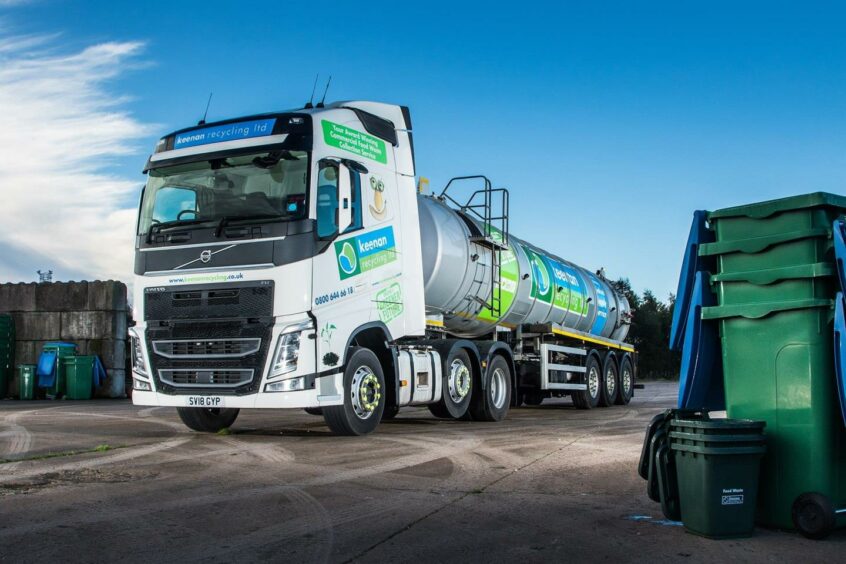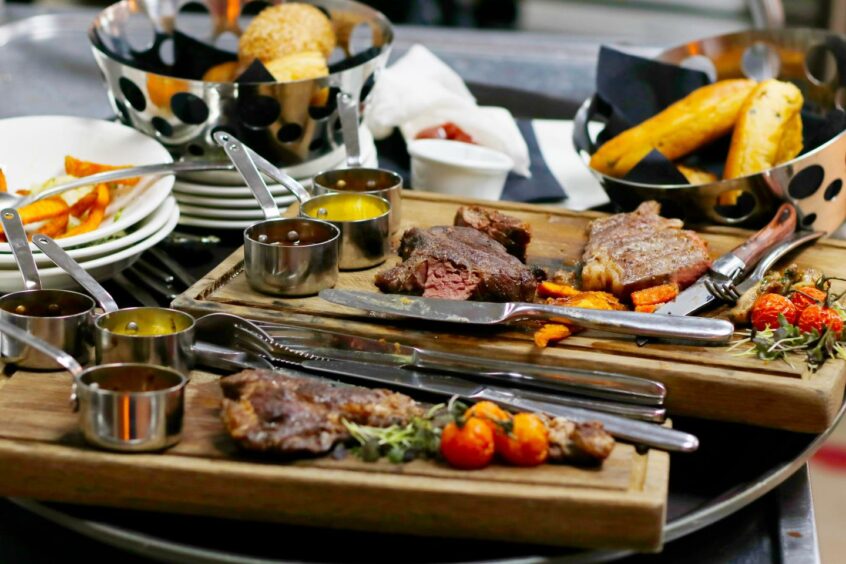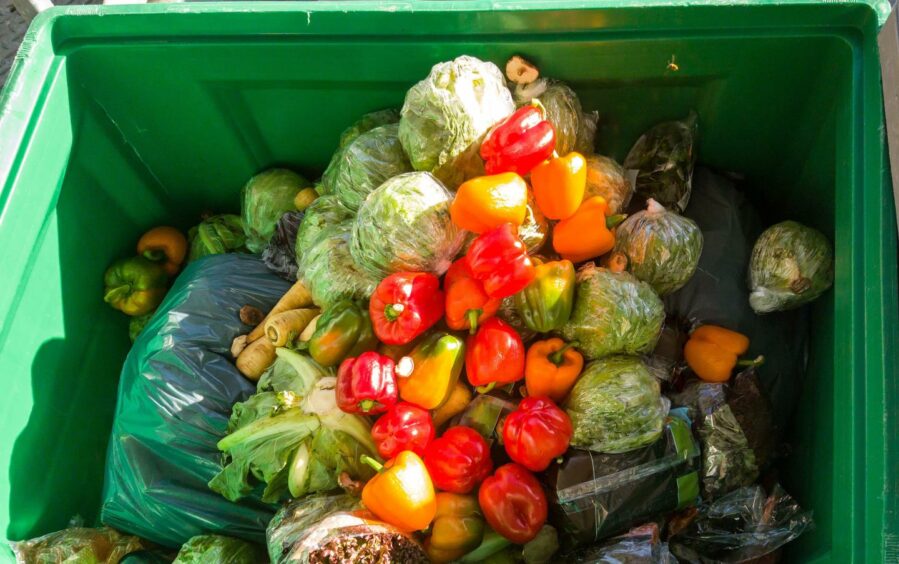Whether you don’t finish your meal in a restaurant, cook too much spaghetti or simply have lots of peels and pips from fruit and vegetables, we are all contributing to food waste one way or another.
In the past, all this waste ended up in landfill where it rotted and released damaging greenhouse gases like methane.
Today however, we are getting better at recycling it. And food waste is being made into compost and biofuel right here in north-east Scotland.
What happens to food which has been chucked into a food waste bin?
In the north and north-east, one of two things will happen to your food scraps: They will either be turned into compost, or they will be turned into biofuel.
This is because all food waste is not equal, as Andrew Gerlach from Keenan Recycling explains.
“There are two main types of food waste; you get packaged waste like food from supermarkets and you get compostable waste, which covers things like biodegradable coffee cups,” he said.
It’s all gathered together at Keenan Recycling’s multi-million pound facility in New Deer, and this is where the magic happens.
Compostable waste is separated from food and shredded before being stored for several weeks until it’s “matured”.
After several weeks the mix will have transformed into organic compost which is accredited by official bodies and sold to nearby landowners.
“The farmers love it,” said Andrew. “It increase their yields with no negative impacts and it’s miles better for the environment than chemical fertilisers.”
The leftover food scraps meanwhile are blended up into a huge soup, “though not a soup of the day mind you,” Andrew said. “This is what we call biofuel.”
What is biofuel?
Biofuel is a renewable energy source which captures the natural methane gases released by rotting food.
Once these gases are captured, they are known as biogas and can be used for electricity, gas to grid and household heating.
The leftover food pulp is then used as crop fertiliser.
It can be smelly, dirty work, but its work which is becoming increasingly important for the environment.
“It’s an incredible process, but the most important thing is that it’s taking this waste away from landfill,” Andrew said.
“A lot of people don’t know just how damaging it is. As food rots and degrades, it emits these harmful gases which are up to 22 times more harmful than a car exhaust.”
The flipside is the amount of (usually unutilised) fuel which is actually contained in the food we throw away.
According to Andrew, two banana skins generate enough power to charge a smartphone. Just over 20kg of waste generates enough electricity for an hour and a half of TV watching.
“People often think that food waste goes to a farm, or is fed to animals,” Andrew said. “They never guess that could be powering their hairdryer.”
What can I do about food waste in Scotland?
Avoiding throwing out food that could have been eaten is the first major step.
A lot of the waste passing through Keenan Recycling’s facility in New Deer is made up of peelings, cores and bones, but the majority is, or once was, perfectly good food.
However some food waste is inevitable – egg shells, banana skins and tea bags are never going to be on the menu.
Putting these in a green food waste caddy to be collected by the council (and recycled by Keenan’s) is far better than chucking scraps into your main bin where they will eventually end up in landfill.
“The law in Scotland requires businesses who work with food and produce more than 5kg of food waste produced a week to recycle it,” said Andrew. By not complying, firms risk a £10,000 fine.
“England still don’t have this legislation, it was meant to be 2023 though I think it will be delayed thanks to covid and Brexit.
“So Scotland are really ahead of the curve on this, and Aberdeen in particular was really quite a pioneer.
“Keenan’s is the largest food waste collection company in the UK, and were started in Aberdeen because the demand was there which is really something the city should be proud of.”
More on reducing your food waste:
- OLIO app can help you be less wasteful, save money and help others in need by gifting people your excess food
- Five ways you can help the environment and improve your diet at the same time
- 52 rashers of bacon, 13 pints of milk: Shocking reality of the food each household throws away every year laid bare in nationwide survey
